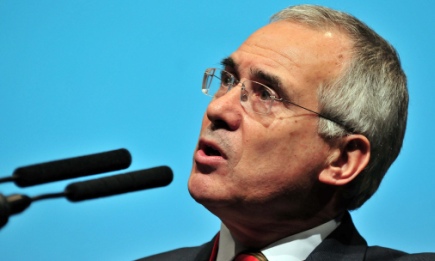Humanities on a mission

Lord Stern, who in his earlier Stern-report famously warned for the effects of climate change and assessed the cost of inaction, now identifies a new great danger in the growing mistrust in social institutions.
“We have, in my view, reached a position which is potentially of great historical significance. We are witnessing a decline in confidence, and sometimes a growing mistrust, not only in political processes and politicians, but in social institutions such as the media and journalism, the police and religious organisations. Inequality is rising on many crucial dimensions. We have, for many, a confusion or anxiety around moral or social values, and community or individual identity.”
If society doesn’t put this process into reverse, Stern predicts we will all be the losers. Stern: “We need a new kind of national conversation, and the voice of the humanities and social sciences must be at its centre. Our researchers and scholars help delineate the choices we confront as a society and as individuals, and how best to respond. They help make the complex intelligible, and help us understand human values and possibilities.”
Applauding Sarkozy
The British Academy has now issued a publication, Prospering Wisely, which redefines the concept of prosperity in in the sense it was expressed by Amartya Sen: ‘letting people and communities lead the kind of lives they value, and have reason to value’.
The report touches on matters of ‘living better’, ‘a healthy, open democracy’ and ‘growth’.
In the publication the British Academy applauds the former French President Nicolas Sarkozy, who in 2008 asked the Nobel prizewinning economists Joseph Stiglitz and Amartya Sen to establish an international commission to explore wider ways of capturing prosperity which extended beyond Gross Domestic Product (GDP) or income per head.
Stern: “These would challenge the world to develop a new set of internationally approved measures that could encapsulate all of a nation’s human and physical resources – including leisure time, people’s sense of community, equality of opportunity and the quality of public services.”
Mature decision making
Prospering Wisely furthermore wants to help improve the policy making process, for instance in health care. “Avoid ill thought-out, short-term policy-making, so that when decisions are made, they are made with more maturity than you find in the usual cut and thrust and sloganising. And we hope they will demonstrate the value of informed, structured public reasoning.”
“Governments, rightly, demand accountability”, the report says. But “narrow, short-sighted accountability can undermine the activities under examination and democratic processes.”
“A society without thriving social sciences and humanities risks achieving at best only an arid kind of prosperity, far less rich than our creative human culture deserves – and at worst confusion, apathy, decline and conflict.”
Meest Gelezen
Vrouwen houden universiteit draaiende, maar krijgen daarvoor geen waardering
Hbo-docent wil wel rolmodel zijn, maar niet eigen moreel kompas opdringen
‘Sluijsmans et al. slaan de plank volledig mis’
Wederom intimidatie van journalisten door universiteit, nu in Delft
‘Free riding brengt het hoger onderwijs in de problemen’

